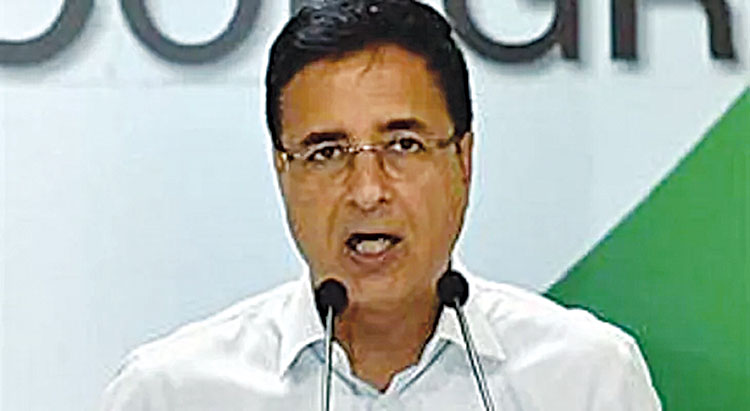New Delhi, Jan 31 (FN Representative) Congress spokesperson Randeep Singh Surjewala on Monday said the Economic Survey is a classic case of “what statistics say” versus “what they (Govt) actually reveal”. In a series of tweets, the Congress Chief Spokesperson said the Survey reveals ‘Intrinsic Weakness of the Economy’ and the “Gross Economic Mismanagement” by the Modi Government. “Growth Numbers reveal that even in FY2021-22, economy will be of the same size as in FY2019-20. Govt should be ashamed of the economic ruin caused by misplaced priorities,” Surjewala said. He said the “lost years” have pushed 4.6 crore people into abject poverty and 84 per cent of families have seen wage reduction.
“Private Final Consumption Expenditure per capita is still 5 percent less than 2019-20 level (pre Covid). For 8-8.5 per cent GDP growth, we require Investment to GDP ratio of 38.25 per cent. But who will invest when demand isn’t picking up in economy?” he questioned. “Is 8-8.5 percent GDP growth for FY 23 another Jumla! Total Debt of Govt. of India, which was Rs. 53 Lakh Crores in March 2014, would blow up to Rs. 136 Lakh Crores by March 2022,” he said. “If Revenue expectations are too good & on target as reflected in Survey, why will each Indian owe Rs.1 Lakh by March 2022, a loan they have never taken!” He added that the Economic Survey fails to assess the brutal impact of high prices on Indians – with massive job losses and erosion of incomes and ignores the divide – as income of richest Indians increased by 13 Lakh Crore, the poorest 15 crore households have seen income reduction of 53 percent.
“Self serving cheerful assessment of economy raises doubts about what the Budget is set out to achieve- which should be to stimulate the ailing economy, revive sectors, boost consumption, encourage investment and create jobs -none of which the survey insists is a problem at all,” he said. The Economic Survey 2021-22 tabled in Parliament on Monday has projected a 8-8.5 per cent growth for the economy in the financial year 2022-23. The Survey said that growth in 2022-23 will be supported by widespread vaccine coverage, gains from supply-side reforms and easing of regulations, robust export growth, and availability of fiscal space to ramp up capital spending.

